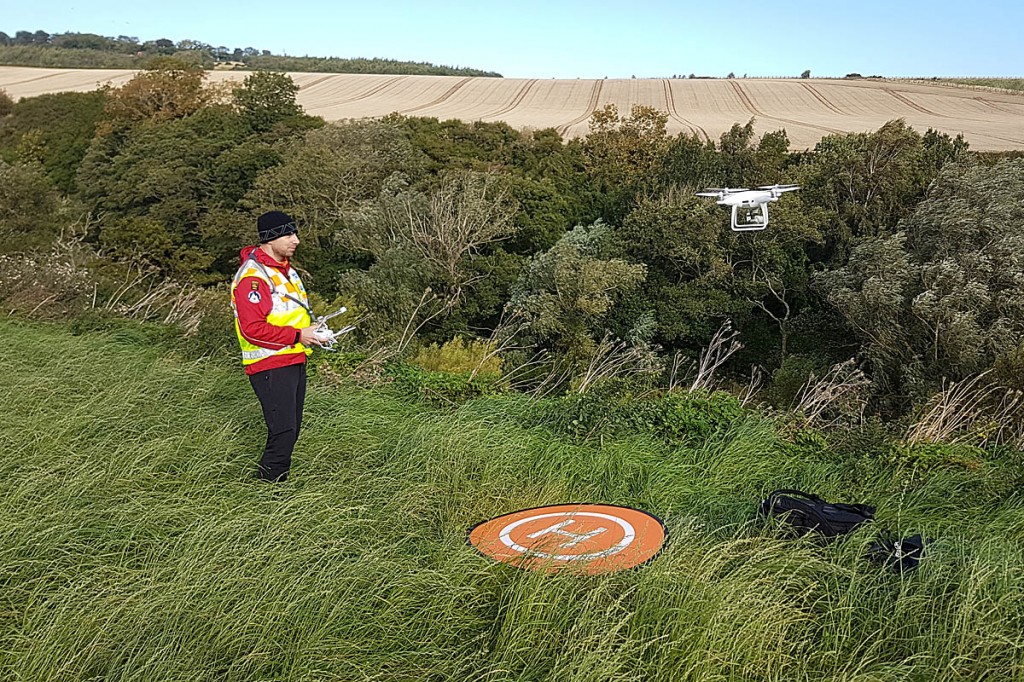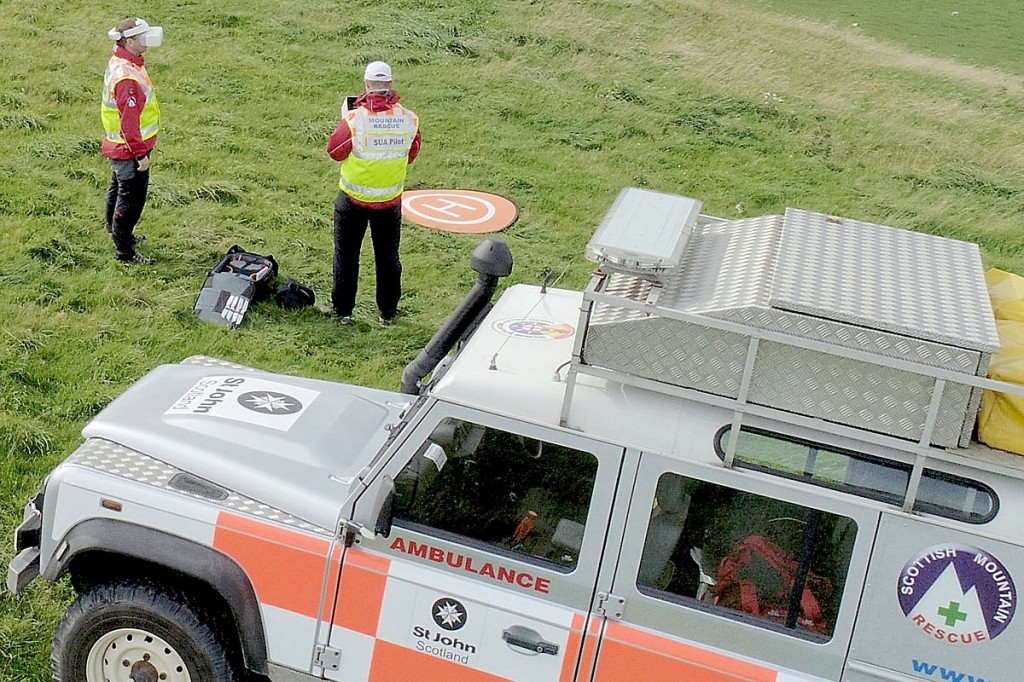A group dedicated to the use of drones in searches has been officially recognised by mountain rescuers north of the border after it took part in the first live operation.
Search and Rescue Aerial Association-Scotland was admitted to Scottish Mountain Rescue, the umbrella body for most teams in Scotland.
A representative of the new organisation said the use of drones in searches represents the one of the most significant developments in mountain rescue since search dogs were introduced in the 1960s,
SMR voted to admit SARAA-Scotland at its annual meeting, a couple of days after the drone group took part in the search for a missing person in East Lothian.
SARAA-Scotland said the use of drones, officially known as small unmanned aircraft, is a step forward in speeding up searches for missing walkers in Scotland’s countryside.
The organisation was established as a charity in July after a feasibility study into the use of the aerial vehicles by SMR. SARAA-Scotland currently has one set in use in the Tweed Valley area, and the drone was deployed on 20 September for the first time in an actual search.
Dave Wright, association chair, said: “SARAA-Scotland are incredibly proud to be part of the group of MRTs represented by Scottish Mountain Rescue.
“The use of small unmanned aircraft – or drones to most people – in search and rescue is still relatively new but the technology is now at a stage where it can be affordable to voluntary organisations like ourselves and the existing MRT network.
“We are still a small organisation but our aim is to build a truly scalable and sustainable operating model which can be used across the whole of Scotland to save lives of those lost, missing and injured.
“I genuinely think that the introduction of SUAs into the search and rescue toolbox will be the most significant enhancement of capability since the introduction of search dogs in the 1960s.”
The group said its inclusion in SMR will enable national representation through various UK search and rescue forums as well as being part of a well established network of mountain rescue teams. In turn, it said, the existing SMR membership would have the opportunity to help shape SARAA-Scotland and the use of the new aerial assets in land search and rescue as the organisation grows and evolves.
Kev Mitchell, vice-chair of Scottish Mountain Rescue, said: “Scottish Mountain Rescue are delighted to support the excellent work done by the SUA (drone) working group both in their collaborative work during feasibility and the extensive and highly professional evaluation and testing phase of the study.
“This allowed us to progress quickly with our partners Police Scotland and to satisfy the [Civil Aviation Authority] as to the training and ability of pilots. We were delighted when the newly constituted Search and Rescue Aerial Association-Scotland had their first live call out and their recent affiliation into Scottish Mountain Rescue was unanimously welcomed by Scottish mountain rescue teams as a positive and exciting addition to our search capacity and has the potential to speed up searches and save lives.
“We eagerly anticipate the development of the association and an expansion of their lifesaving capabilities.”
Training in the use of the drones was provided by FlyBy Technology. Tom Nash, SARA-Scotland’s chief pilot and training officer, said “Our pilots will undoubtedly fly in some very demanding conditions. Training and confidence are key to success. As a charitable organisation we don’t have loads of spare time to maintain a constant watch on the ever evolving SUA legislative world.
“Flyby Technology provide this within their service wrap so we can also be sure we are always flying to the latest rules and regulations.”

